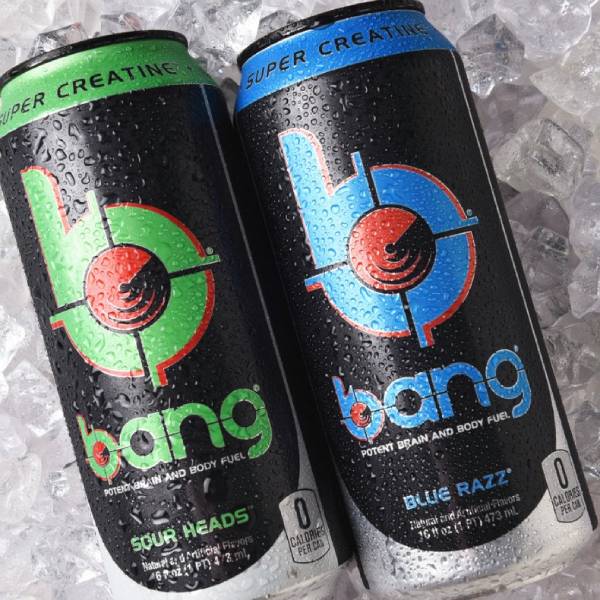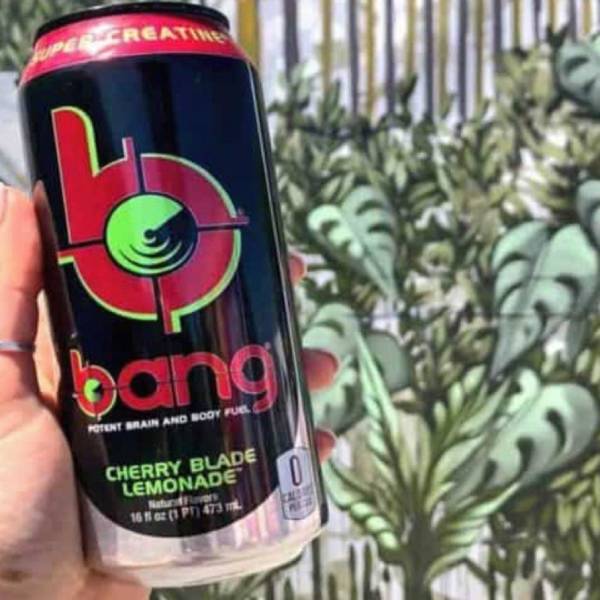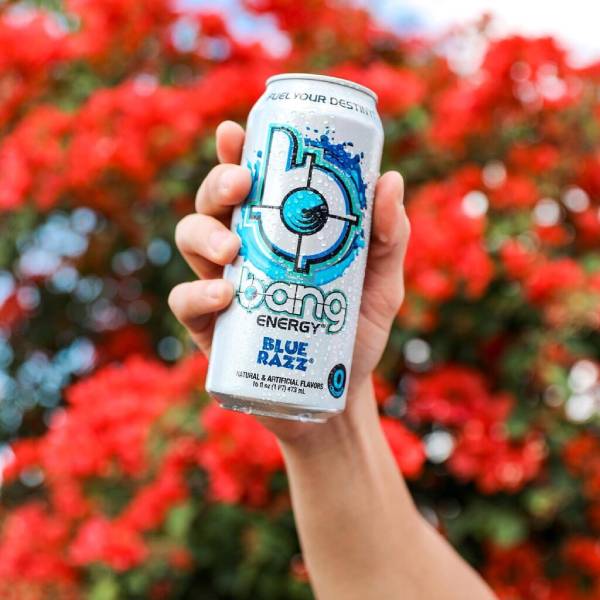Energy drinks have surged in popularity, and many people wonder, are Bang energy drinks bad for you? These vibrant cans promise an energy boost that appeals to anyone feeling fatigued. They catch attention with catchy marketing, bold flavors, and a high caffeine content. However, the potential health risks demand scrutiny.

Ingredients in Bang Energy Drinks
The Role of Sugar in Energy Drinks and Digestive Response
Beyond caffeine, the sugar content in energy drinks is another significant factor that can lead to gastrointestinal issues. Many energy drinks are formulated with high levels of high fructose corn syrup or other types of sugars. When these sugars are consumed in large quantities, they can upset the balance of the digestive system. This disruption can lead to symptoms such as bloating and diarrhea. The fermentation of sugar in the gut by bacteria produces gas, which can cause discomfort and the urge to have a bowel movement. For individuals sensitive to sugar or those with conditions like irritable bowel syndrome, the effects can be particularly pronounced.
Managing Sugar Intake for a Comfortable Digestive Experience
To mitigate the potential for gastrointestinal distress caused by energy drinks, it’s important to be mindful of sugar intake. Opting for drinks with lower sugar content or those sweetened with natural alternatives can help reduce the risk of adverse reactions. Additionally, consuming energy drinks in moderation can prevent overwhelming the digestive system with excessive sugar. For those who experience discomfort after consuming energy drinks, it may be beneficial to explore other sources of hydration and energy that do not contain high levels of sugar. Understanding the impact of sugar on digestion can empower individuals to make choices that support their digestive health and overall well-being.
The Impact of High Caffeine Levels
To answer, are Bang energy drinks bad for you, we must consider the impact of high caffeine levels. A typical adult can safely consume 400 mg of caffeine daily. Bang’s 300 mg per can accounts for a substantial portion of this limit. In sensitive individuals, even moderate caffeine can trigger anxiety, insomnia, and heart palpitations.
Furthermore, studies indicate high caffeine consumption may lead to addiction. Habitual consumers may build a tolerance over time. Consequently, they may need to increase intake for the same effects, leading to unhealthy patterns.
Sugar-Free Claims: A Double-Edged Sword
Many drinkers might find the sugar-free claim appealing. After all, sugar consumption remains a major public health concern. However, when questioning, are Bang energy drinks bad for you, we should consider artificial sweeteners. Bang energy drinks utilize sucralose as a sugar substitute. Research suggests sucralose may affect gut health negatively and alter microbiome composition.
Some consumers may also experience digestive issues from artificial sweeteners. Reports of bloating and gas often accompany these sweeteners. Thus, while avoiding sugar, users may inadvertently introduce other unhealthy concerns.

Potential Heart Risks
The Impact of Caffeine on Heart Health
When it comes to evaluating the potential negative effects of Bang energy drinks, heart health is a critical area of concern. Caffeine, a key ingredient in these drinks, is known to have a stimulating effect on the cardiovascular system. It can increase heart rate and blood pressure, which may be problematic for some individuals. The American Heart Association has issued warnings about the consumption of excessive caffeine, particularly for those with pre-existing heart conditions. For susceptible individuals, the sudden increase in heart rate spurred by high caffeine intake can potentially lead to arrhythmias, highlighting the importance of being mindful of one’s caffeine consumption.
Moderation as a Key to Heart Health
Given the potential risks associated with high caffeine levels, moderation is key when it comes to consuming energy drinks like Bang. While they may provide a temporary boost in energy, the long-term effects on heart health should not be overlooked. Individuals with heart conditions or a history of cardiovascular issues should exercise caution and consult with their healthcare provider before incorporating energy drinks into their routine. For others, being aware of the total caffeine intake from all sources throughout the day can help mitigate the risk of adverse effects on heart health. By prioritizing heart health and practicing moderation, consumers can make informed decisions about their energy drink consumption.
Mental Health Considerations
Mental health remains a vital topic when evaluating, are Bang energy drinks bad for you. High caffeine may lead to anxiety and mood swings. Individuals with anxiety disorders may find their symptoms exacerbated. In some cases, withdrawal from caffeine may also trigger depressive symptoms.
Additionally, many consumers find themselves heavily reliant on energy drinks to boost productivity. This reliance can lead to increased stress levels and burnout. Learning healthy coping mechanisms and maintaining a balanced diet may soothe the need for such stimulants. The worst energy drinks may offer temporary boosts but ultimately contribute to stress and burnout, emphasizing the need for healthier alternatives and coping strategies.
Misleading Marketing Tactics
When examining Bang energy drinks, one must consider marketing tactics. Additionally, the branding appeals to fitness enthusiasts. It claims to be a “performance-enhancing” beverage. However, this claim may be misleading. Moreover, marketing strategies often prioritize sales over health. Consumers should question the actual benefits. Research into health risks is essential. Many ingredients may have negative effects. Consequently, one must weigh the pros and cons. Experts advise caution with energy drinks. Always read the label before consumption. Ultimately, informed choices are crucial for health.
Many advertisements feature muscular athletes showcasing success, leading consumers to believe that energy drinks contribute to improved performance. The reality remains more complex. While caffeine may enhance physical performance in moderation, excessive consumption leads to more significant risks, overshadowing potential benefits.
Alternatives to Bang Energy Drinks
Exploring Healthier Energy-Boosting Alternatives
The discussion around the potential drawbacks of Bang energy drinks can inspire individuals to seek healthier alternatives for maintaining their energy levels. Natural sources of energy, such as herbal teas and smoothies, can provide a safe and effective way to boost energy without the high caffeine content found in many energy drinks. Instead of relying on energy drinks with the most caffeine, consider natural alternatives like herbal teas and smoothies for a healthier energy boost. Staying well-hydrated with water is also essential, as dehydration can lead to fatigue. By turning to these natural options, individuals can support their energy levels and overall health more effectively.

Enhancing Energy Levels Through Diet and Lifestyle
In addition to natural energy sources, making dietary improvements can contribute to sustained energy levels. Incorporating fruits, nuts, and whole grains into one’s diet provides a steady release of energy throughout the day. These foods are rich in nutrients that support both physical and mental well-being. Regular physical activity also plays a crucial role in enhancing energy levels, as it helps to improve cardiovascular health and boost mood. By adopting a balanced diet and an active lifestyle, individuals can achieve long-lasting energy and improved overall health, reducing the need for energy drinks with potentially harmful ingredients.
Conclusion
In conclusion, the question, are Bang energy drinks bad for you, hinges on personal health and awareness. The high caffeine and artificial ingredients present potential risks. While these drinks can provide immediate energy boosts, the long-term consequences may outweigh benefits. Energy drinks can offer quick stimulation, but it’s crucial to consider their health risks and long-term effects on your well-being.
Consumers should consider their own health needs and preferences before indulging. Exploring healthier alternatives is always advisable. Ultimately, knowledge empowers consumers to make informed choices about their health and well-being.